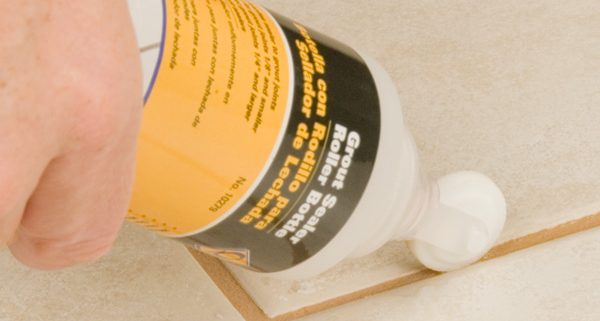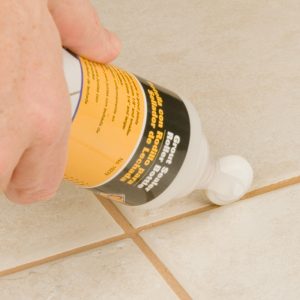Should I seal my grout? Scotchguard the carpets?
To seal or not to seal?
Should I use a grout sealer? Should I add Scotch Guard to my carpets after cleaning? This is the question we get on almost every tile and carpet cleaning job we do. The answer is, it depends. Some grouts will benefit from a sealer more than others. Some carpet will benefit from protectors more than others. The reason for both are very similar even though the textiles are very different.
It really has to do with the absorbency of the textile. Sanded grout is much more porous than unsanded grout and should be sealed unless the grout was mixed with a grout additive. Grout additives are basically sealers built in to the grout. This helps it resist staining along with other benefits which include better bonding as well as better color uniformity. These additives are produced by many different manufactures and can be found in tile shops and home centers everywhere.
Grout Additives
We at Pristine Tile & Carpet Cleaning use grout additives in all of our grout mixes as we feel it delivers the best end results for our customers. If your unsure if your grout was installed with a additive, you can still apply a sealer. It won’t hurt it, it just won’t absorb into the grout as well and could be a waste of money. The piece of mind knowing it’s protected outweighs the possibility of permanent staining of unprotected grout.
Unsanded grout is is le
ss porous than sanded grout and will absorb less of the sealer. Epoxy grout is by far the least absorbent of the grouts and is not very common in the residential market. Carpet is the same as grout in the sense that different fiber types absorb more that others. For instance an olefin berber carpet will not absorb as much as nylon carpet. Some of the higher end carpets such as Stainmaster come with a protection from the factory and should be reapplied periodically.
How often do I need to seal?
Quality grout sealers can last many years, some claim 15 or 20 years. This really depends on the type of sealer and the traffic in your home as well as your cleaning habits. We strongly advise not to use harsh chemicals such as bleach or acids to clean. They will damage the grout as well as the sealer and even remove color. Always use neutral cleaners that do not leave residue that can cause rapid re-soiling.
Myth of sealers
Okay here is the big let down, sorry folks. Grout sealers and Scotchguard protector will not keep your floors or carpet from getting dirty! Foot traffic, dirty mop water, pets and children coming in and out will eventually take their toll and you will have to clean it. The good news is that the sealers will provide a protective barrier to prevent permanent staining and make cleaning easier. The trick to keep your grout or carpet from becoming permanently stained is to clean up the spill as soon as possible.




